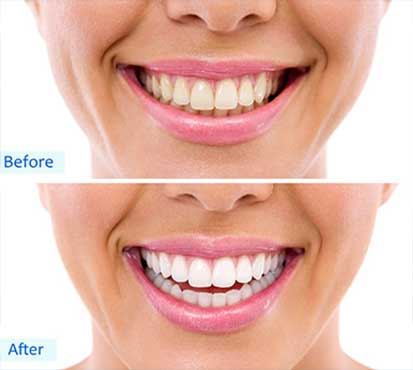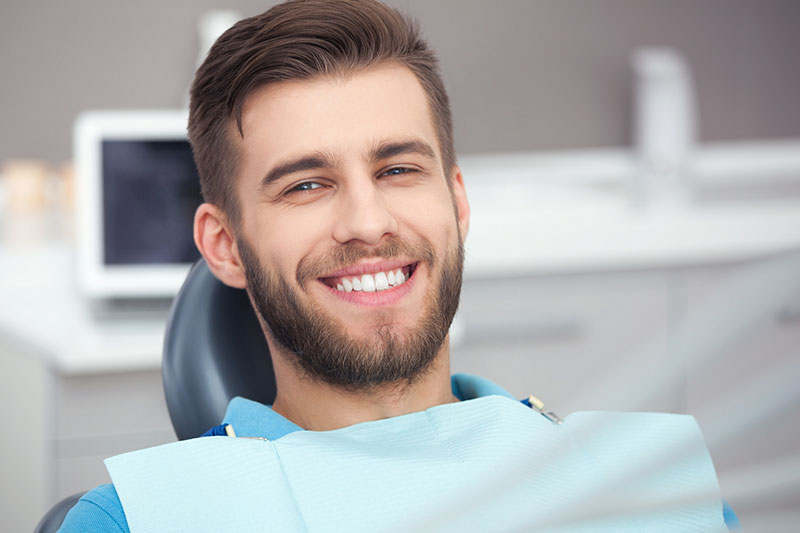Teeth Whitening Blacksburg
Transforming Smiles

What Is Teeth Whitening?
Teeth whitening Blacksburg is a process that can be accomplished through several different systems, including whitening toothpastes, over-the-counter gels, rinses, strips, trays, and whitening agents given by a dentist.
Teeth whitening is an ideal solution for those who have healthy, unrestored teeth with yellow tones
Types of Teeth Whitening
1. Toothpaste
Toothpaste removes stains on the surface due to the mild abrasives they contain. Some toothpastes may provide additional stain removal through polishing or chemical agents. Whitening toothpastes only deal with surface stains, while professional whitening products can help lighten color deeper in the tooth with hydrogen peroxide. Light-activated whitening in the dentist’s office, however, can lighten teeth by three to eight shades.
2. Whitening gels.
Whitening gels are clear and peroxide-based. Gels are generally applied twice a day with a small brush over the course of two weeks. Results are usually seen within a few days and may last for about four months.
3. Whitening strips.
Whitening strips are thin and coated with peroxide-based gel. These strips are usually applied twice a day for 30 minutes over the course of two weeks. Results are similar to those seen in whitening gels.
4. Whitening gels.
Whitening rinses are among the newest whitening products available and are similar to most mouthwashes in that they freshen breath and may reduce dental plaque and gum disease. Whitening rinses contain extra ingredients, such as hydrogen peroxide, which manufacturer’s say will whiten teeth after 12 weeks of use. They are best used twice a day for 60 seconds before brushing, yet some experts claim that rinses are not as effective as other over-the-counter products because the rinse is only in contact with teeth for a short amount of time. Tray-based whitening systems involve wearing a tray filled with whitening gel that fits in your mouth. Depending on the amount of discoloration, one may need to wear the tray anywhere from a couple hours a day to every night for up to four weeks or longer.
5. Bleaching.
In our dental office, bleaching is the quickest teeth whitening solution. The products involved in bleaching may be used along with heat, light, and/or lasers. The process requires only a one-time treatment lasting only up to an hour. For best results, multiple appointments are recommended, however, in-office bleaching is the most expensive treatment available.
Difference Between At Home and Dental Supervised Whitening?
The differences between at-home and dentist-supervised whitening systems include
- Strength of bleaching product: Over-the-counter products generally contain less powerful bleaching agents than in-office treatments.
- Mouth tray shape: Store-bought whitening trays are usually made in one size and shape, which can result in discomfort and gum irritation as well as leakage of whitening gel.
- Dentist-supervised at-home products are often customized to fit your mouth, reducing discomfort and allowing for the gel to make full contact with your teeth.
- Extra protection: In-office treatments often include protective material for your gum tissue to prevent the whitening gel from affecting your gums. This extra protection is not available in over-the-counter products.
- Examination: Your dentist can examine your teeth and use your medical history to help determine how your teeth became discolored and what kind of treatment is best for you. Over-the-counter products leave you to your own guessing.
Common Questions About Teeth Whitening
How long does it last?
No teeth whitening Blacksburg process is permanent. Food, drinks, and heavy smoking may continue to stain teeth after any of the teeth whitening processes are completed. The length of time in which teeth stay white after a whitening process depends on many factors, including condition of one’s teeth, their avoidance of food and beverages that tend to stain teeth, and the type of whitening system they used.
Contradictions
Teeth whitening is not recommended for children under the age of 16, pregnant or lactating women, people with sensitive teeth, gum disease, or teeth with worn enamel, and those who are allergic to peroxide. Anyone with cavities should be treated before undergoing any kind of whitening procedure or they will risk the whitening product from entering the inner areas of their tooth, causing sensitivity. Fillings, crowns, and other dental restorations do not whiten. Smokers and those with darkly stained teeth (not including yellow) will see limited results and should discuss their options with a dentist before beginning treatment.
Side effects?
Side effects of teeth whitening Blacksburg include tooth sensitivity and irritation of soft tissues of the mouth. If sensitivity occurs, you can reduce it by using the at-home treatments for a shorter period of time or by allowing your teeth to adjust to the whitening process by stopping the treatment for two to three days. Fluoride or potassium nitrate toothpastes may help.



